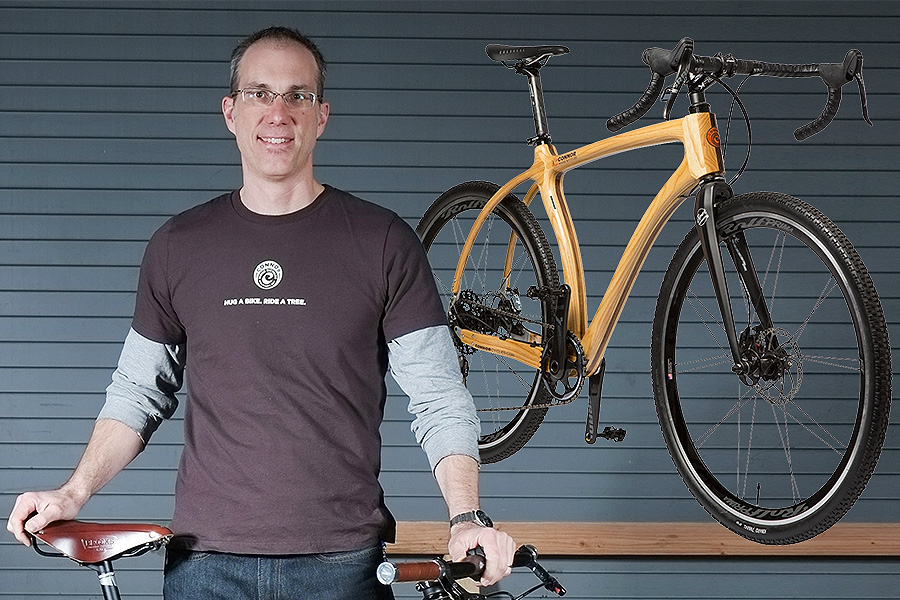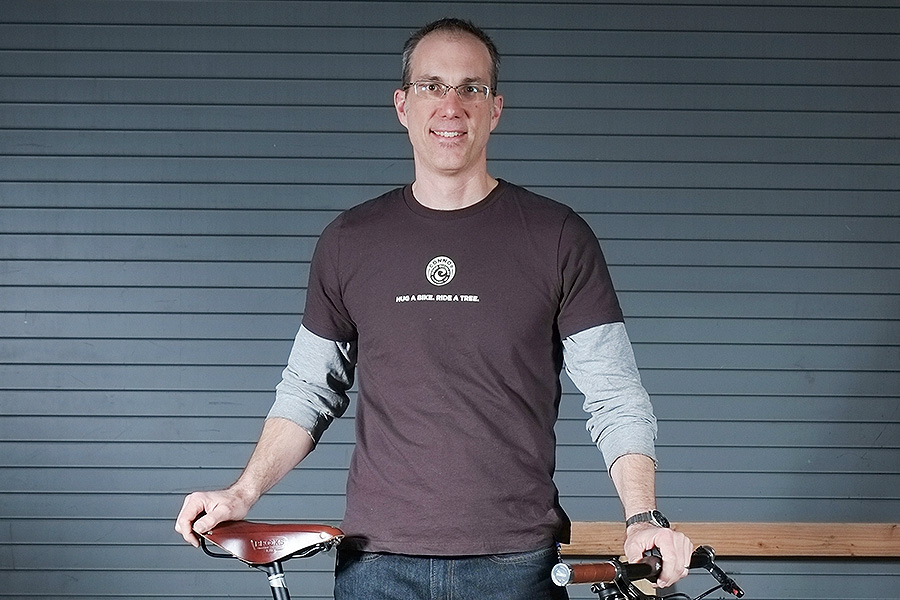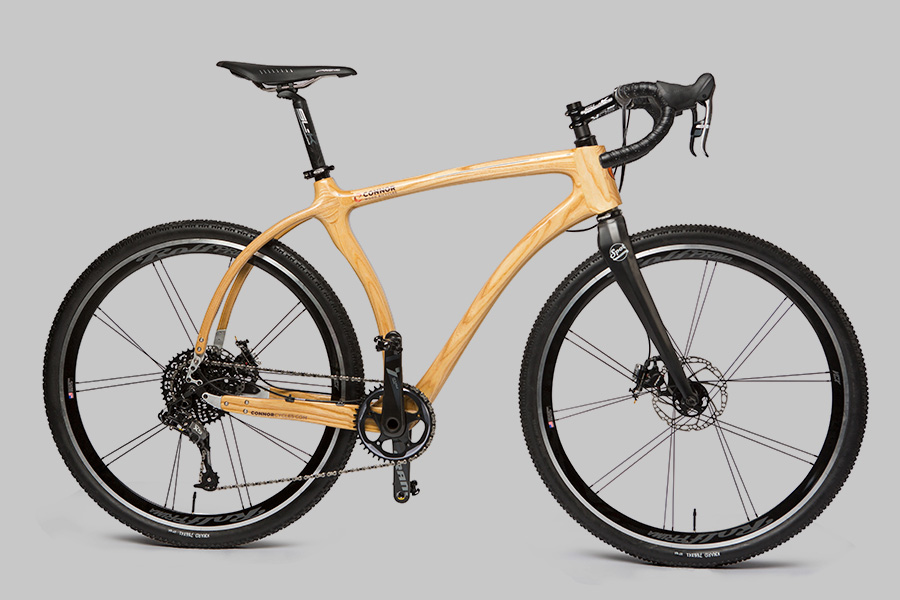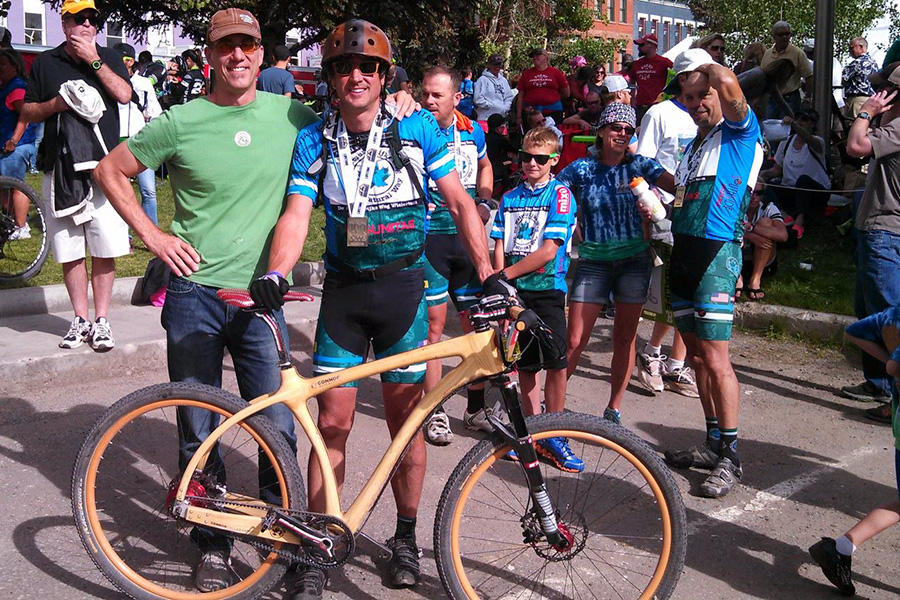
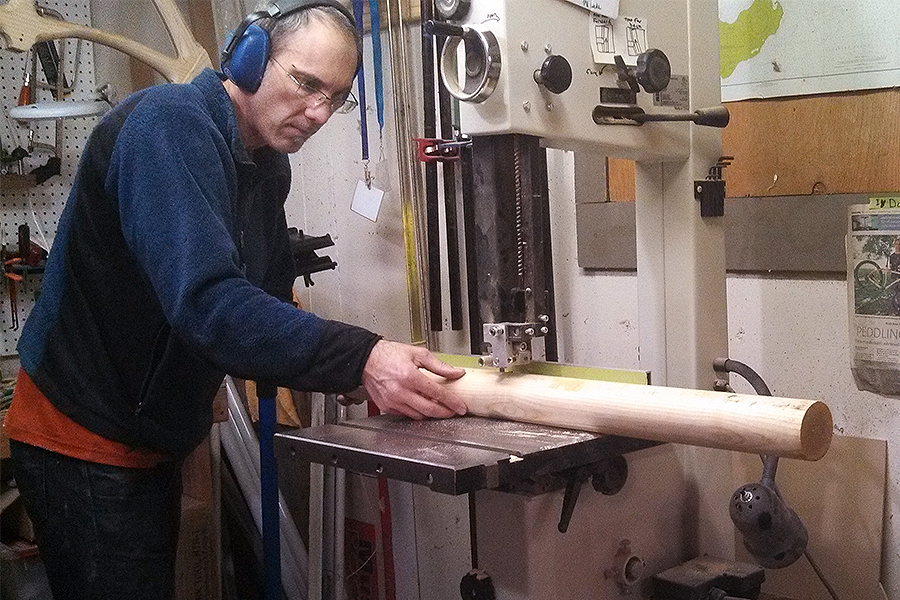
Could Wood Be the Best Ride?
Knox Grad Builds Wood Frame Bicycles
The Knox curriculum has a strong focus on working to apply your academic studies outside the classroom. How do you see that enhancing the traditional strengths of a liberal arts education?
I cannot stress enough the value of experiential learning. Tying knowledge to the physical world through experience, I believe, helps all types of learners identify with a subject in a way that cannot be attained in the classroom alone. Whether it's a field trip, an internship or an apprenticeship, or hands-on project, having an active role in learning connects the dots to all types of knowledge through experience. Additionally, some people who learn in different ways (like me), are able to better connect to a subject when actively participating in it.
I see that at the high school level, fewer schools are teaching "shop" or "trade" classes, which I believe is unfortunate. These hands-on classes can connect learners to all types of knowledge which can help in many other areas of their education and help them grow as learners. Math, art, engineering, physics, proportion and design are all right in front of you when you're building something. In higher education, opportunities to introduce experiential learning experiences can only make a program stronger and produce better rounded students who understand a subject in the many ways that can't be picked up in a classroom setting alone.
One of your bikes was ridden in a mountain race, the Leadville 100. Did race-exposure raise awareness or sales for your bikes?
Having race exposure has been great for a few reasons. Yes, it got great exposure and lots of people saw the bike. More importantly it showed that the wood bikes can truly perform as *bikes.* Wood isn't the next super- material that racers will seek out for their podium wins, but the race validated that they are strong and won't break even in the harshest of riding environments. Defying the misperception of their frailty is part of the magic and allure of my bikes and part of why people who do ride them have such a great experience.
Any similar plans to get your cyclocross model, the Axehandle, into a road race?
One of my riders has already run it in a some big charity rides, but is also hoping to take it to the Cyclocross Nationals this fall. So yes, it will get raced and get in front of a lot of people to see what wood can do. Every bike of mine is its own ambassador for wood bicycles and every time people see them out there doing what they do it shifts perceptions and will ultimately help me to get more of them out there.
I also recently completed a project building a bike for Louisville Slugger. The wood used in my bikes, white ash, is the same wood used in their baseball bats. They had me build a bike for them from baseball bat billets, which is now on display at the Slugger Museum in Louisville, KY. It's not getting ridden at the moment but thousands of people are seeing it and seem to be amazed.
On the other hand, do you think that wood bikes have potential to expand into the "every-day commuter" market?
Honestly, I think wood bikes will remain a niche product. That's a good thing though. They're unique and hand built and as much an item of utility as they are art. There are people who do commute on them today, but in order to get them out to the masses they'd end up losing some of their magic and appeal as a mass-market product. I hope to push the envelope with wood bicycles and get more people to accept them, but don't want to pump them out in a factory or outsource them for low-cost production. That's not what they're about.
The biking scene, locally and nationally, has changed a lot in recent years -- what was it like when you were a Knox student?
Most of my time in Galesburg was spent on campus, and since it's so compact I didn't need to ride to and from classes or anywhere else. For sport, I mostly spent time in the gym. A couple times I did borrow a friend's bike and did some beautiful rides in the area.
Published on August 07, 2015


